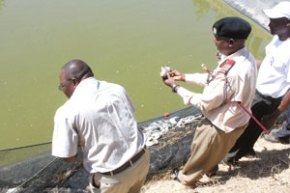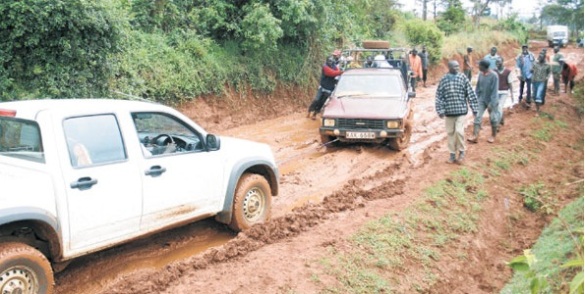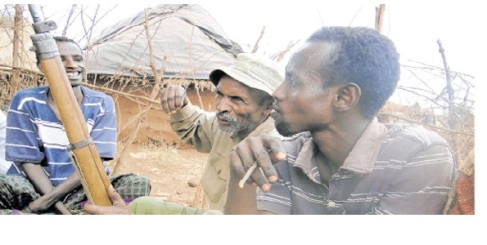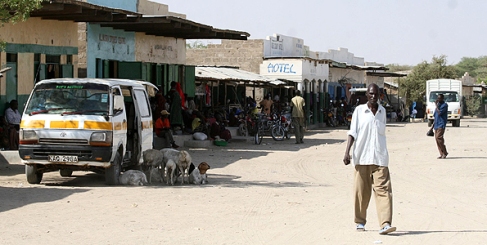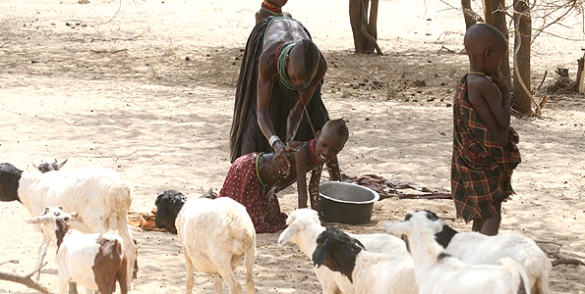For decades, life was simple among the country’s pastoralist communities. If a man had many cattle and as many wives as well as children, he was highly respected and was among the likely choices for village leadership.
Time has turned this upside down. The quiet village life and pride that came with having herds of cattle are no more. Climate change has brought about unpredictable weather patterns. Recurring droughts have depleted the once plenty pasture land and demand for land is higher as population
Therefore, the pastoralists had to embrace alternative ways of life as they can no longer depend on cows, sheep and goats.
In their place, the pastoralists are now rearing fish.In Emsos village in Mogotio District in Baringo County, hundreds of farmers, among them old men, have turned their rocky farms into profitable fishponds.It was not easy for them to pick this new economic activity. For years, they had watched helplessly as rough weather decimated their prized, countless animals.
They have not fully abandoned cattle keeping but the attachment they had towards the animals is no more and the numbers can never be as huge.Their fish, which they fondly call Arap Mibei (son of water), is slowly taking over their affection and gracing their dinner plates.The fish rearing business is now booming in the semi-arid area.
Meat every day
“No family can slaughter a whole cow or goat just to get something to ‘escort’ ugali at the evening meal. But now we can enjoy meat every day following the introduction of fish,” says Isaac Chirchir, who was among the first people in the area to embrace the new farming.
Fish farming is one of the projects the Government initiated through the economic stimulus programme, whose purpose was to inject fresh ideas for wealth development among other things.It was tough selling the fishing idea among the pastoralists initially. That was four years ago. But when they decided to ‘try’ it, they are not looking back. Everyone wants to be a fish farmer.
Already, 200 ponds are functioning within Emsos’ natural water springs at the slopes of Kiplegung Hills.The villagers have successfully harvested and replaced 85 of the ponds. They sell the mature fish at local markets. Of course, pond owners and their neighbours also enjoy the fish.
During our visit, young enthusiastic school leavers were busy taking potential farmers through feeding and harvesting methods in several ponds along the small streams that feed Lake Bogoria.
Fish farmer Elijah Tanui is one proud owner of several ponds. He tells The Standard how his community has splashed around fish farming with a passion.It is now common to find herdsmen at local eateries enjoying fish as well as ‘expertly’ eating the head.In addition, families are now comfortably taking their children to school as fish sales are taking care of fees and other incidentals.
Says Tanui: “When we depended on our animals, most of us spent sleepless nights thinking about how to raise school fees. It is no longer the case.”He says rearing fish is simple.”It is less stressful compared with livestock rearing because with this kind of farming you are not required to hire somebody to chase them around. The only thing to do is provide them with food and wait to harvest,” he says.
In the past, the Tugen particularly disliked fish and had many myths about the fish. They could not even enter a house where fish was being cooked. The smell was repulsive, they believed, and was not good for their wellbeing.Interestingly, this has rapidly changed, says Mr Tanui.”The belief is dying as members of the community take up fish farming in great numbers.”
Here, villages form small groups before applying for financial assistance from the Government, which assists them to start and even expand the farming with ease.
Global market
Like any other serious and profitable farming, fishing has its problems. The Mogotio fish farmers want the Government to get them markets for their products. Local consumption is good but they can’t finish all the fish. And to get good money, these farmers must display their ware at global markets.
Vision 2030’s Omar Mohammed, who visited the farmers recently, encouraged them, saying private sector players, government and the farmers will work together to ensure the programme succeeds and is beneficial to farmers.
Dr Mohammed said fish farming among Kenyans is a potential local tourist attraction. Communities from other counties would visit to enjoy the local fish cuisine. Fisheries’ secretary Prof Charles Nguki says every Kenyan must be encouraged to eat fish as it increases body immunity.
“The region, which is already semi-arid, cannot support extensive agriculture and this has resulted in communities being vulnerable to hunger and malnutrition. Scarcity of food leads to conflict in some areas.
This programme will increase the communities’ income, improve their food security and reduce their reliance on food relief,” said Nguki.The farmers have already done their bit and all they need is guidance on how to sell their fish in the global market.
The ball is the Government’s court. It needs to kick it fast before these farmers become disillutioned.
source standardnewspaper
